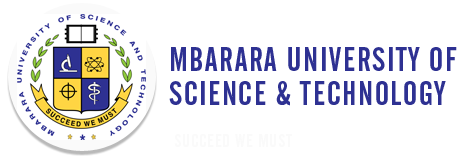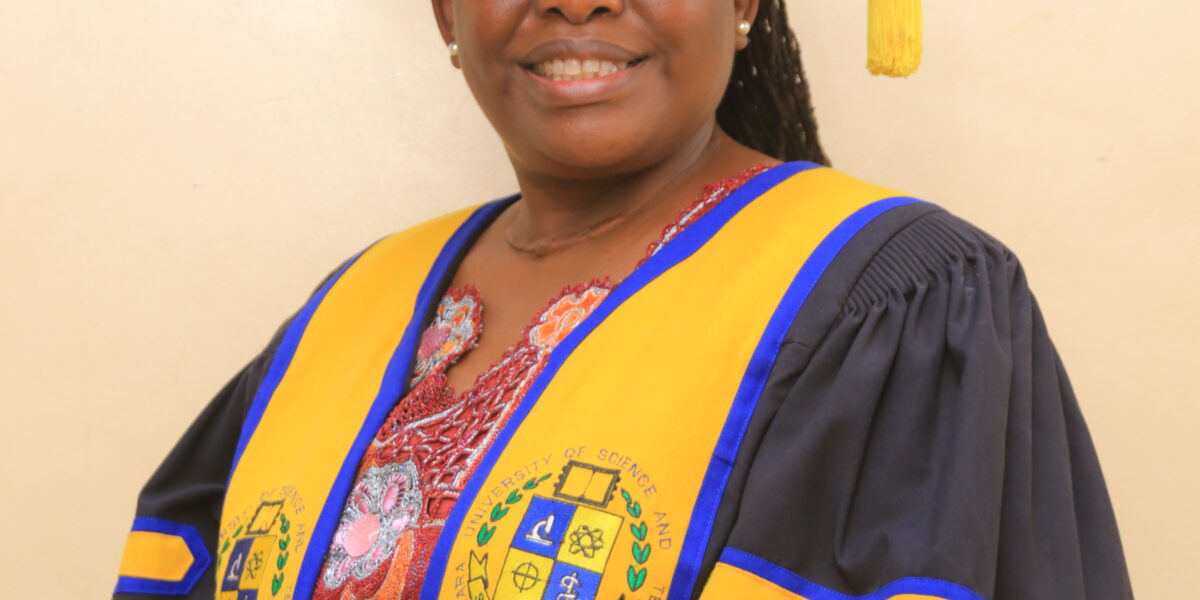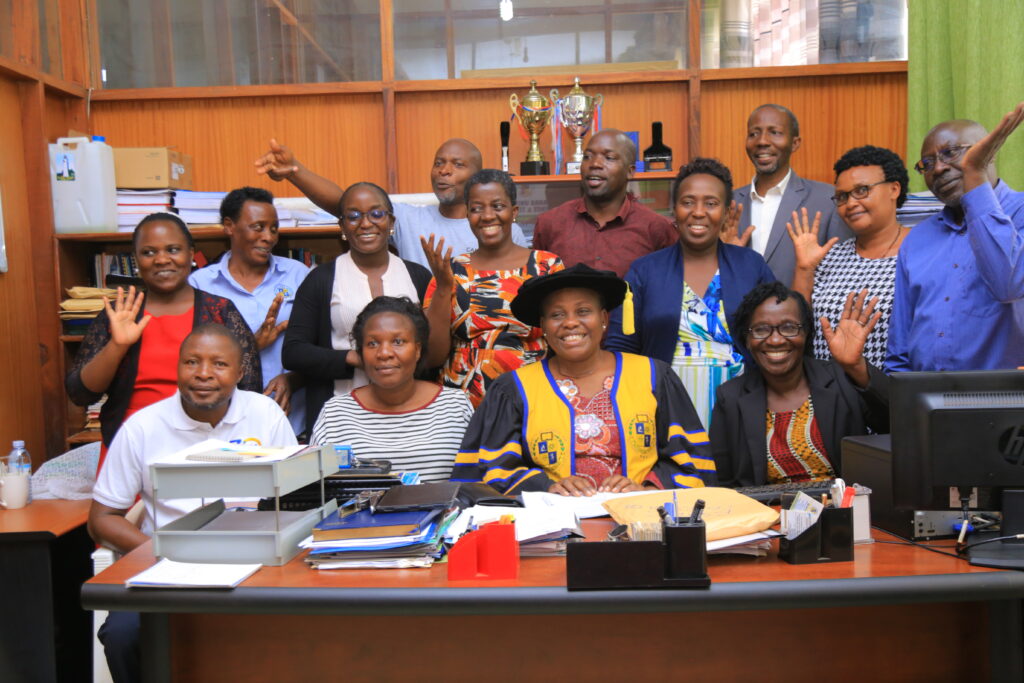
Dr. Bariyo has served as Dean of the Faculty of Interdisciplinary Studies at Mbarara University of Science and Technology since January 6, 2020. Today January 11, 2024 the faculty and staff witnessed the handover event.
Dr. Rogers Bariyo handed over instruments of power, to the new Dean Dr. Wendo Mlahagwa Olema.
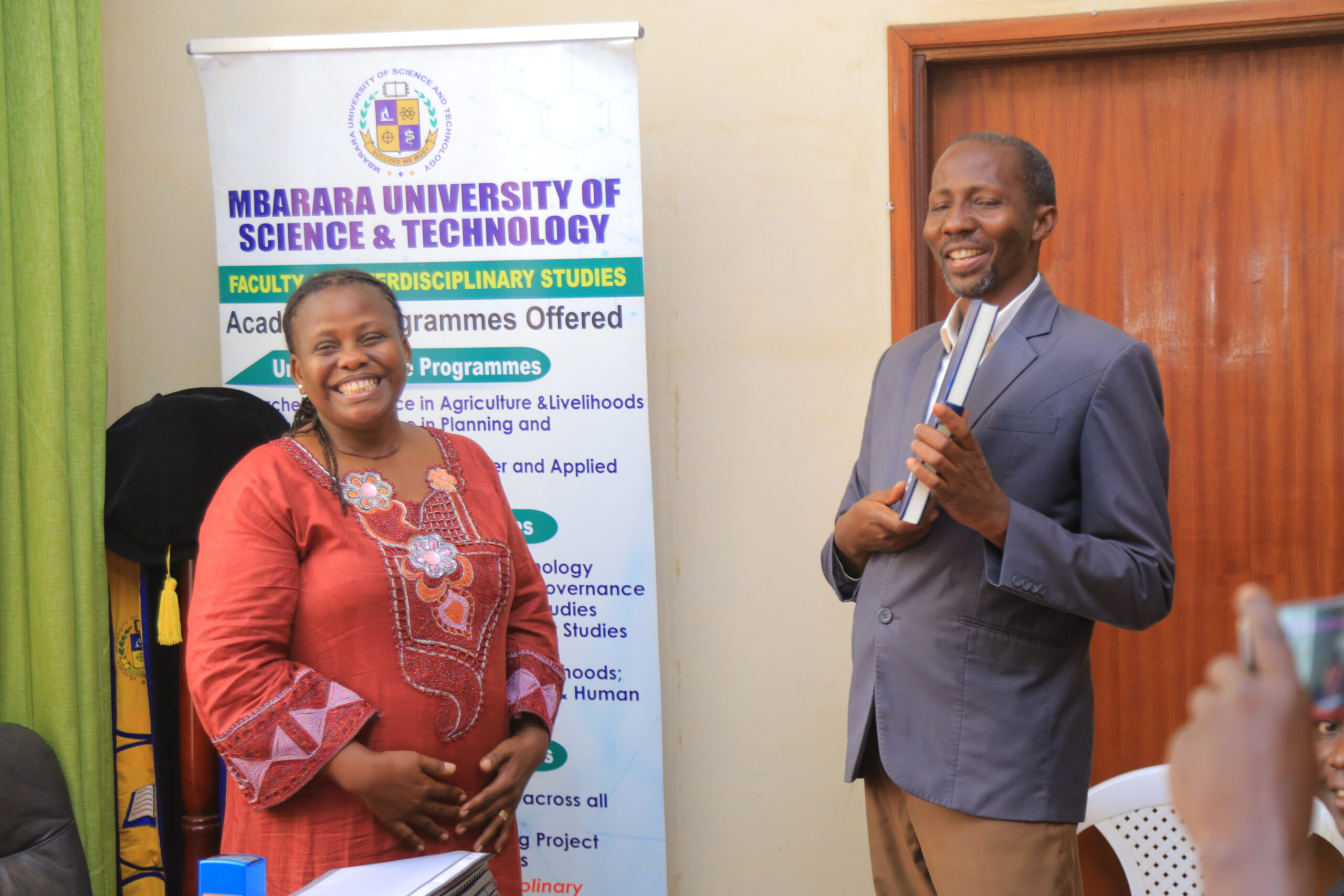
Dr. Bariyo congratulated the new dean upon having been elected the Dean, Faculty of Interdisciplinary Studies (FIS), Mbarara University of science and Technology (MUST). He said this was in accordance with section 53 of the Universities and other Tertiary Institutions Act 2001 as amended 2006. (Please refer to section 48 of the same act on the roles and mandate of the Dean.)
In his hand over speech, Dr. Bariyo appreciated the team he has worked with that was so supportive during his team of office. He pointed out the P/S Winnie Twikirize the administrator, Madam Betty okumu, the Faculty administrator, Mr. Frank Mutungi, the records officer, Ms. Nafula Cathy, the finance officer Kabonesa Edridah office attendant and Mr. Kizza Alex Karemire. These colleagues supported me especially as we sailed through the tough times of the Covid-19 pandemic.
He shared the major Achievements during his term of office that included;
During his term of office as Dean, He contributed to a number of developments at both the Faculty and Institutional levels as presented below:
- Teaching and Learning – I spearheaded the review and (re-)accreditation 03 undergraduate programs i.e. Bachelor of Science in Gender and Applied Women Health, Bachelor of Science in Planning and Community Development, Bachelor of Science in Agriculture and Livelihoods, Post graduate Diploma in Criminology and three MA programmes (hard and soft copies in Dean’s Office and HoD/Units).
- Research and collaboration – the Faculty is experiencing a growing research and grant profile. Members of academic staff have attracted prestigious grants and collaborations from a wide range of local and international academic institutions. In addition, staff are increasingly engaged in academic writing which has resulted in a number of peer reviewed publications.
- Student’s enrolment has now increased both at Undergraduate (more especially for Bachelor of Science in Agriculture and Livelihoods) and Postgraduate levels.
- Farm Improvement. With the support of the Donors (especially SNV), Projects (such as EARNED) and Government of Uganda, a number of achievements have been registered at the farm such as paddocking, pasture improvement, irrigation unit (refer to Farm monthly reports).
- New donations:
(a). The Faculty has received a Tractor from the Ministry of Agriculture, Animal Industry and Fisheries Under project Improving and use of Agricultural machinery for agricultural mechanization in Uganda”. The Dean, should ensure that Registration number and cards are acquired from MAAIF. Mr. Alex Kiiza Karemire, a certified operator will assist in this aspect. Lastly, the Faculty should design operation and maintenance guidelines in consultation with University Top Management and in line with MoU with MAAIF.
(b). An Espresso (coffee) machine was donated by Uganda Coffee Development Authority (UCDA). Students were trained on its operation. However, UCDA will send the signed MoU. Students Coffee Club, under the assistance of their Patron, Mr. Hannington Odongo will draft guidelines and submit them to Faculty Management on how the machine will be managed. In consultation with University Management, Coffee club will be guided accordingly.
(c).Through the Earned Project Coordinated by Hannington Odongo, the Faculty received an LG UHD TV Screen, a projector and Projection Screen. A suitable place should be identified for these facilities.
- Community engagement – the Faculty has a growing rich community outreach training agenda where students engage and serve the community for their practical learning experiences. The Faculty continues to engage in community –based training and during the last two academic years, the Faculty has been working with Mbarara City to implement the community –based training activities under student-community Twinning Project (STP). Under the STP, we have realized a wide range of community-based development initiatives that include wine making, piggery, backyard vegetable, gardening, compost manure, apiary, fish farming, craft making, soap and book making, pottery and weaving among others. The Faculty is running memorandum of understanding with progressive farms for its farm attachment course for the agriculture science students. These include IBO mixed farm, AGDI, Kyera Agricultural Training College.
- Staff development – a number of academic staff have completed their PhD training and others are progressing well and are yet to complete their studies. As the incoming Dean, your support to those on training will be of value to them individually and to the Faculty as a whole. In addition, a few staff have been promoted in academic and others recommended for promotion but still await for the required resources at the institutional level.
- Over 5 MoUs have been signed with different organization. The Dean needs to keep them active and complete the pending one such as one with Uganda Red Cross Society and Eduserve Education Agency (that deals with placement of Agricultural students in Europe).
To the new Dean, Dr. Bariyo also presented the major Challenges and proposals to consider so as to address the challenges.These were:
- The Faculty is experiencing reduced Government funding for its operations which is affecting performance on a number of activities (attached is a copy of the current financial stand),
- The Department of Environment, Livelihood and Support System lacks essential full time staff to handle courses such as Mechanisation and Food Science and Technology. Over relying of part-time/contract staff is not a durable solution. Efforts should be made to recruit full time teaching staff,
- Much as Agricultural Students are increasing, there are not sufficient facilities such as laboratories to support learning.
- Low PhD completion rate. A number of students register for doctoral studies, how many of them get “lost” along the way. There is a need for the Faculty to work with other units such as DRGT and address this perennial challenge,
- Negative attitude against some programmes run by FIS. There has been constant question about the relevancy and existence of FIS in a university of science and Technology. Secondly, some programmes currently run, are perceived to be misplaced! The Faculty leadership has to make deliberate efforts to demonstrate the relevancy of FIS and secondly review/re-think the programmes perceived as misplaced.
Dr. Bariyo challenged the new Dean to the following tasking:
Marketing and Visibility of the Faculty
In collaboration with Vice Chancellor’s Office (Public Relations, International Relations) Academic Registrar and Computing Units, FIS management should intensify marketing efforts. The web-page needs to be periodically updated.
Research and Publications
You need to support and strengthen research teams that exist at the Faculty for improved outputs.
He advised the new dean to always execute her duties as Dean, referring to the Constitution of the Republic of Uganda, Universities and Other Tertiaries Act (2006 as amended), MUST Human Resource Manuel 2023, MUST University Rules and Regulations among others. “Let your rational decision be informed by policy and regulation not feelings”.
Word of wisdom from the former dean to the new Dean
Work with everyone. Consult as much as possible. Think deeply before you act. Confidentiality is key, keep people’s secrets like they have entrusted you with them. Be frank and open. Empower units. Delegate but remember you will be held responsible.
He advised her to always entrust herself with God in all that she will do. He shared a bible verse of 1 kings 3-9.
Dean Bariyo also shared his prayer that has guided him from the day he assumed office as the dean.
“I am young and I do not know much about being a king. Make me wise and obedient, help me know the difference between right and wrong, help me lead your people well”.
The new dean took the oath of allegiance and Secrecy to serve with honor dedication and deliverance during her team of office.
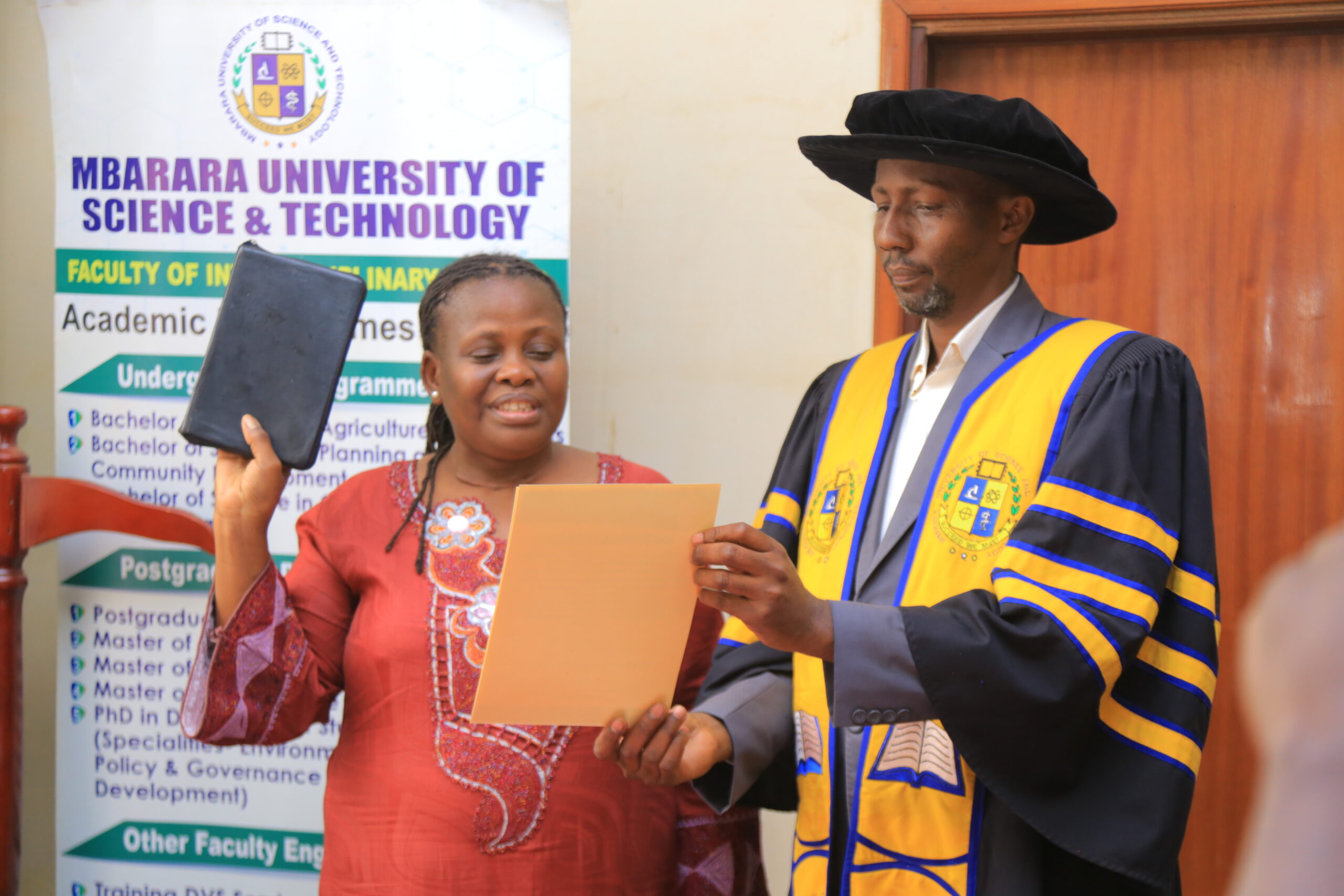
She was later en-robed fully as a Dean.
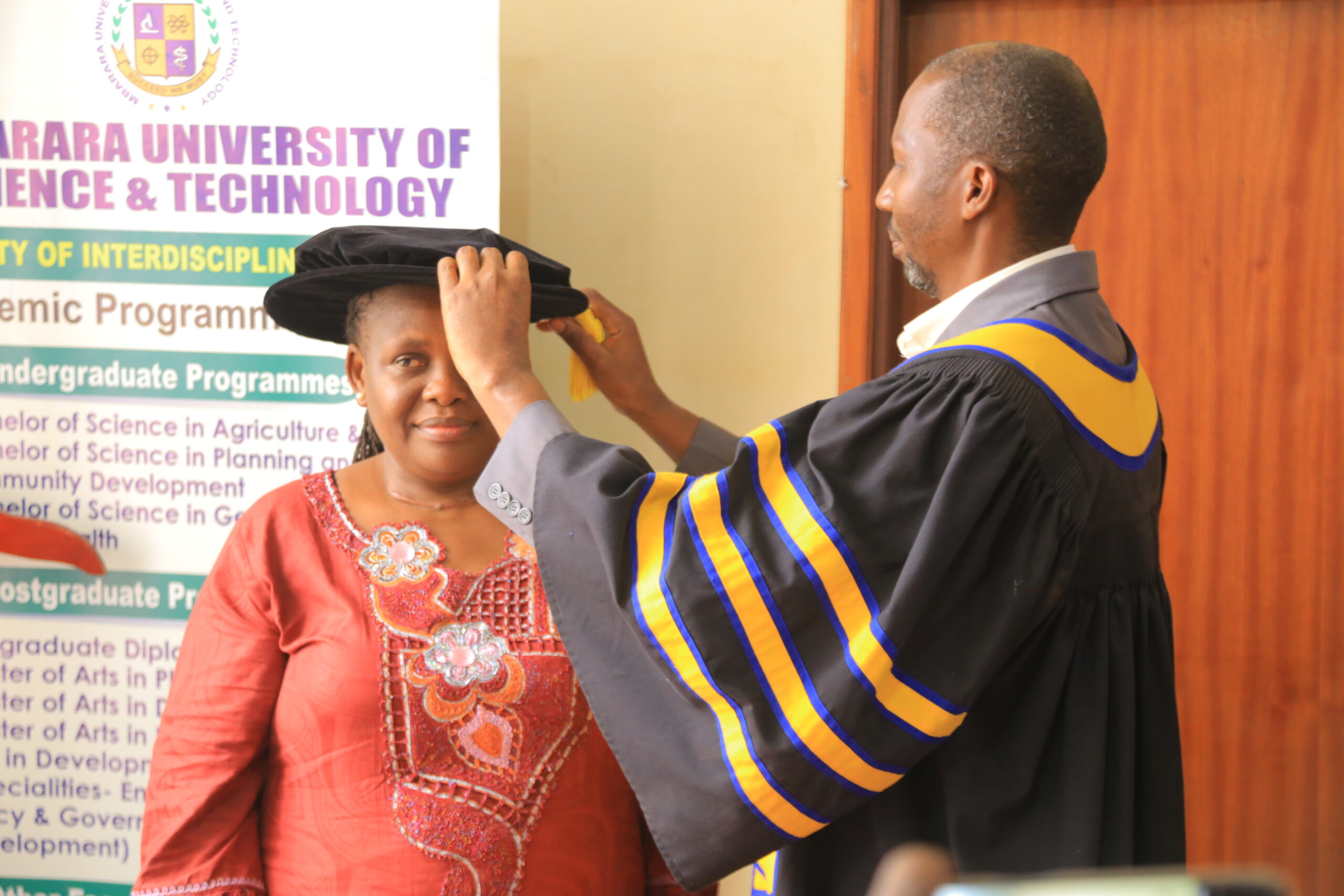
The former Dean ushered and welcomed Dr. Bariyo into the former Deans league
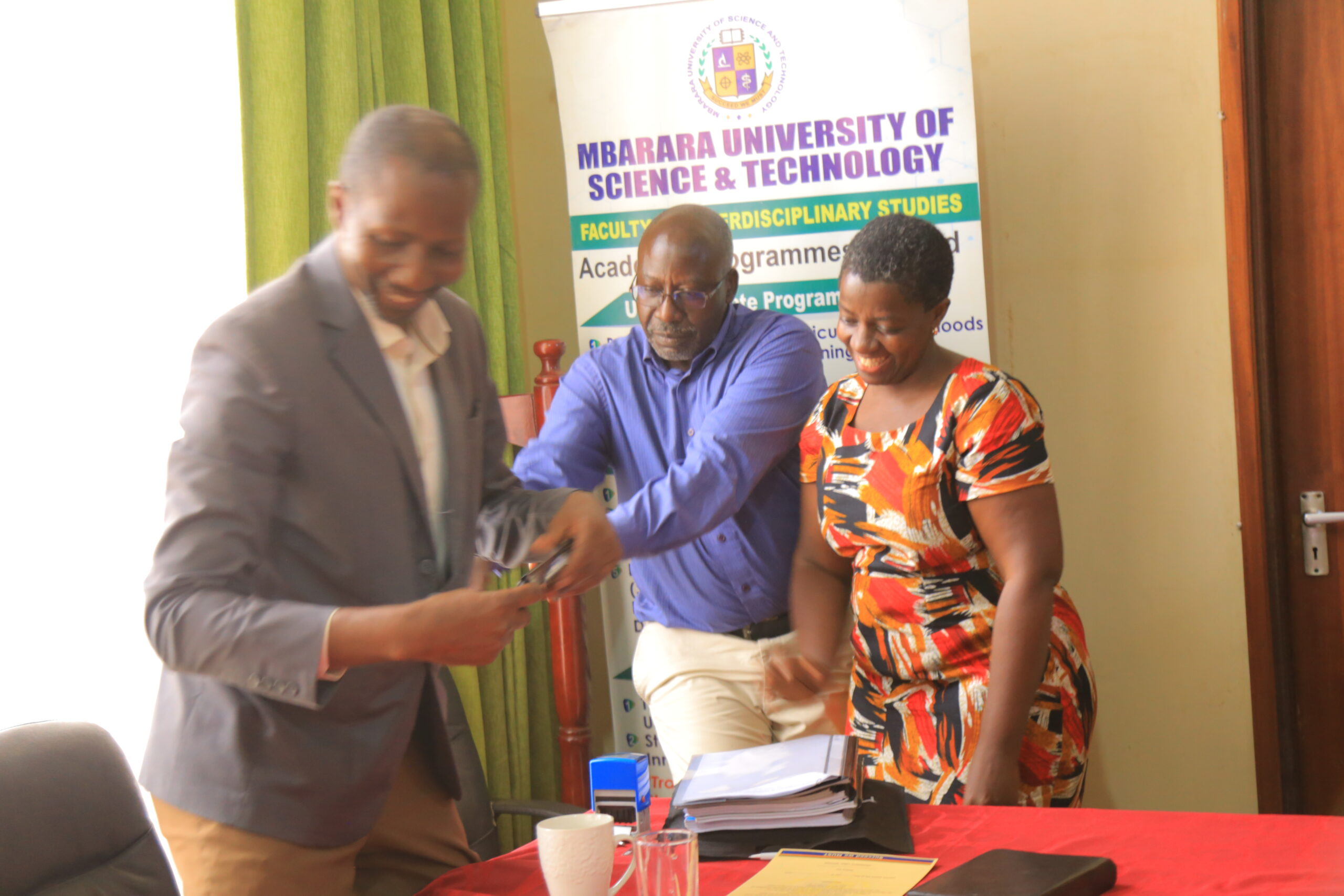
In her acceptance speech, Dr. Wendo expressed gratitude to everyone who attended the event. She accepted to lead the Faculty and vowed to work with everyone and that she will be consulting and promote teamwork.
With the instruments of power, she will ensure that the student numbers keep high, and will make an effort to ensure that they look at alternative fund sources and ideas to deal with the constraint of reduced government funding.
Who is Wendo, the new FIS Dean?
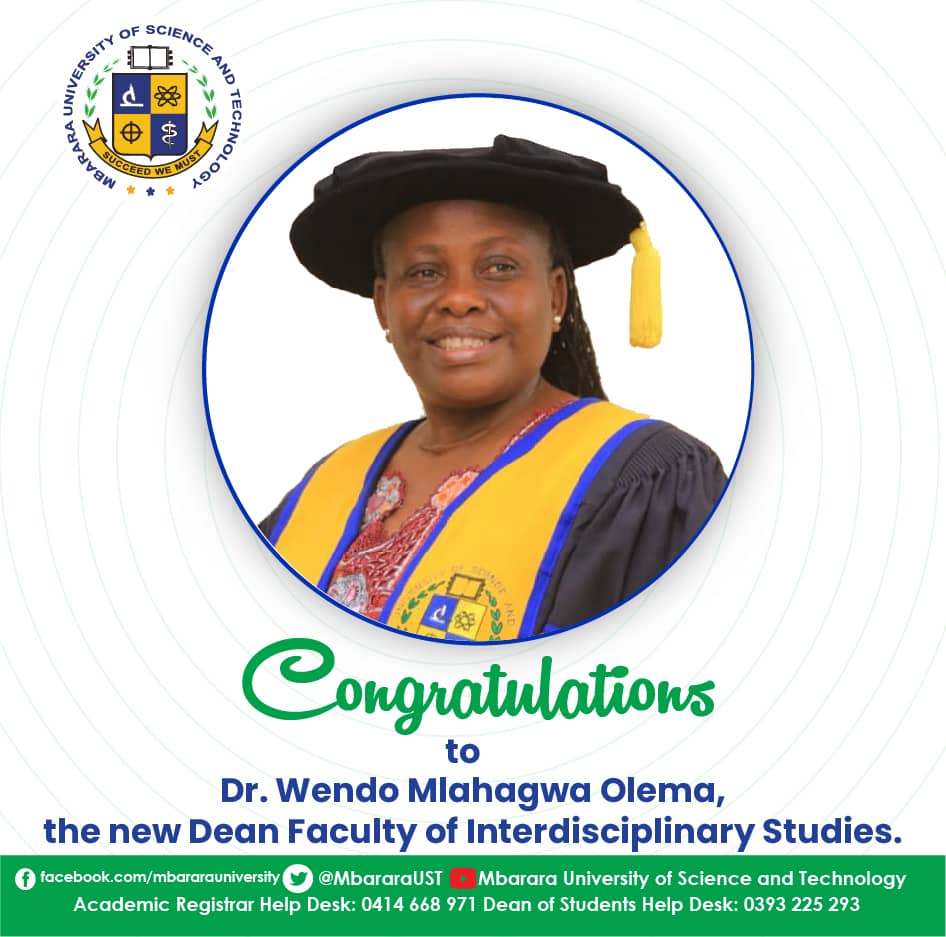
Dr. Wendo Mlahagwa holds a PhD in Development Studies (MUST), Master of Arts in Development Studies (MUST) and a Bachelor of Arts (Edu) from Dar. She has been teaching in the Faculty of Interdisciplinary Studies at Mbarara University of Science and Technology (MUST) Uganda for the last 20 years. She is currently teaching Development Studies which is a crosscutting in the University, taught to all undergraduate students and Community Development course in the Master of Arts in Development Studies program.
She was coordinator of a Development Studies service course (a crosscutting course offered to all undergraduate students at MUST) from 2011 to 2018 and the acting head of Gender and Women studies at MUST from 2013-2014.
Her research interests are on forced migration, peace and conflict studies. Her further interests are on sexual and reproductive health among adolescents in both refugee and normal setting. Dr. Wendo is a contact person for EMMIR (European Master in Migration and Intercultural Relations) an African-an Erasmus Mundus Master course in migration studies jointly run by three African and European universities, facilitated by a wide network of partners.
Her task is to orient and guide EMMIR during the 3 week intensive phase in Oldenburg by giving them tutorials and orienting them during their internship in every 3rd semester in Refugee settlements in Uganda.
She also led a team from 2022 September to July 2023 in carrying out interventions among the indigenous Batwa people of Uganda on integrating mutual aid groups and informal saving schemes to alleviate gender based among the Batwa in Kanungu district, funded by USAID.
